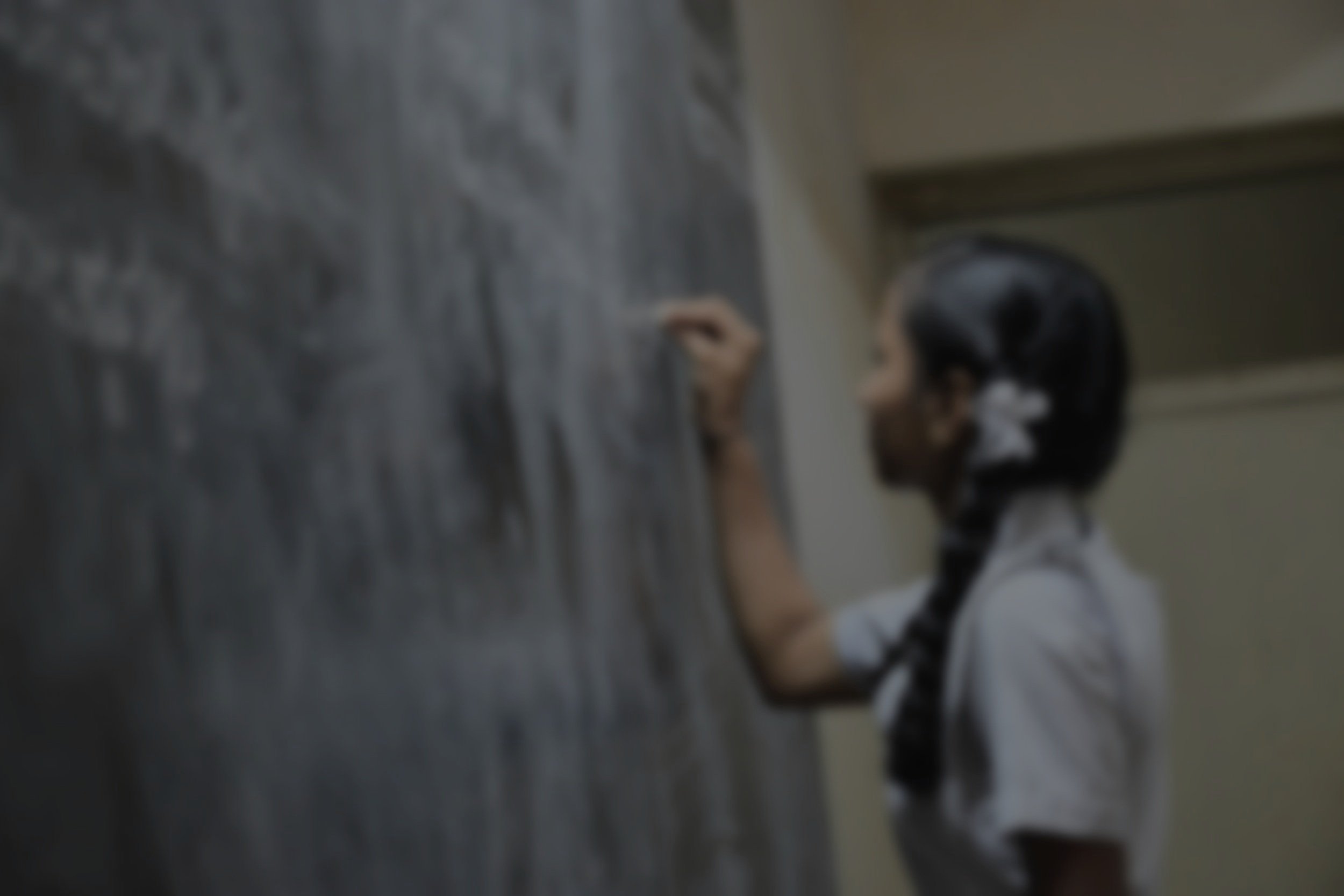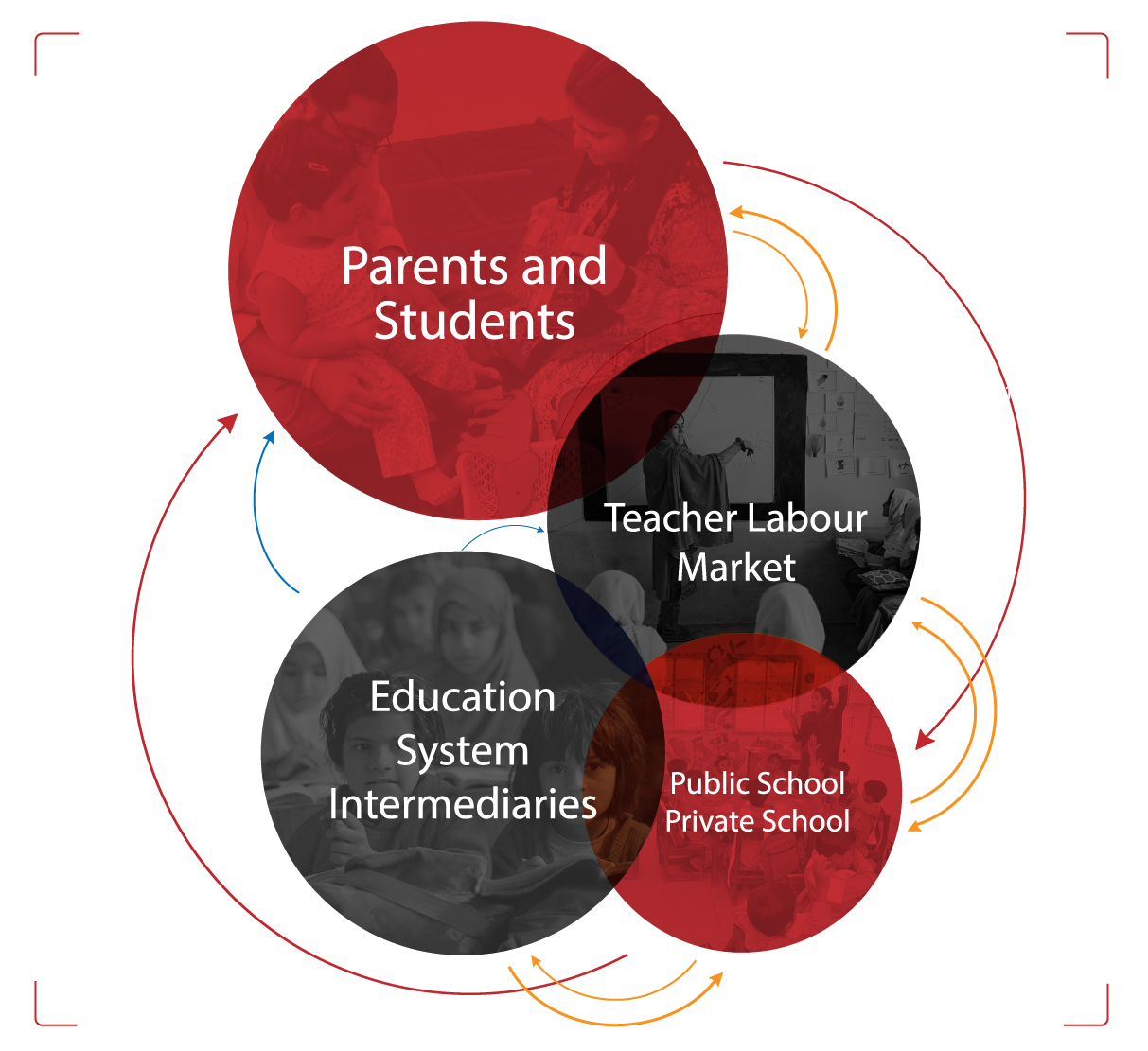
SYSTEMS THINKING APPROACH
In 2003, a team of researchers led by Tahir Andrabi at Pomona College, Jishnu Das at Georgetown University (formerly at the World Bank), and Asim I. Khwaja at the Harvard Kennedy School, embarked on an ambitious research program, “The Learning and Educational Achievement in Pakistan Schools (LEAPS)" project. LEAPS began as a large-scale, independent survey and testing exercise and has since expanded into a unique longitudinal study with data on both schools and households and a series of embedded experiments. LEAPS brings a unique approach to education research by using systems thinking to drive improvements in schooling outcomes.
The Solution
The education ecosystem is made up of many actors engaging with each other in complex ways. Systemic frictions—called “market failures” in economics—can make it difficult to engage in the best possible way to ensure that the whole system thrives. Click the image on the right to see the complex interactions in Pakistan’s education ecosystem.
The Ecosystem
The Challenge
Our research shows that every community, school, and child struggles with their own unique challenges. This means innovations that are successful in one context can fail in others. We therefore focus on broad approaches that allow different parts of the ecosystem to generate their own innovations, specific to their local context.
Instead of asking “what inputs work to improve education outcomes?”, which can differ widely by context, we invert the question and ask, “what are the obstacles that are holding schools back from innovating, improving, and growing?”
Understanding the Ecosystem







